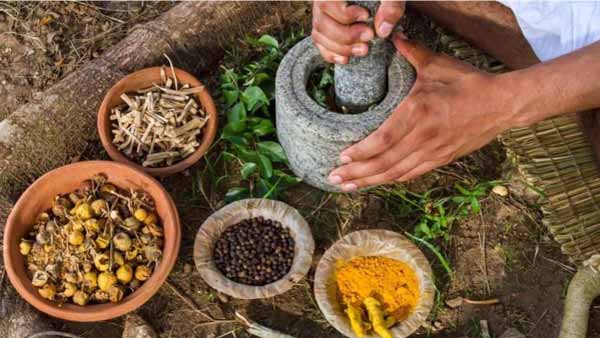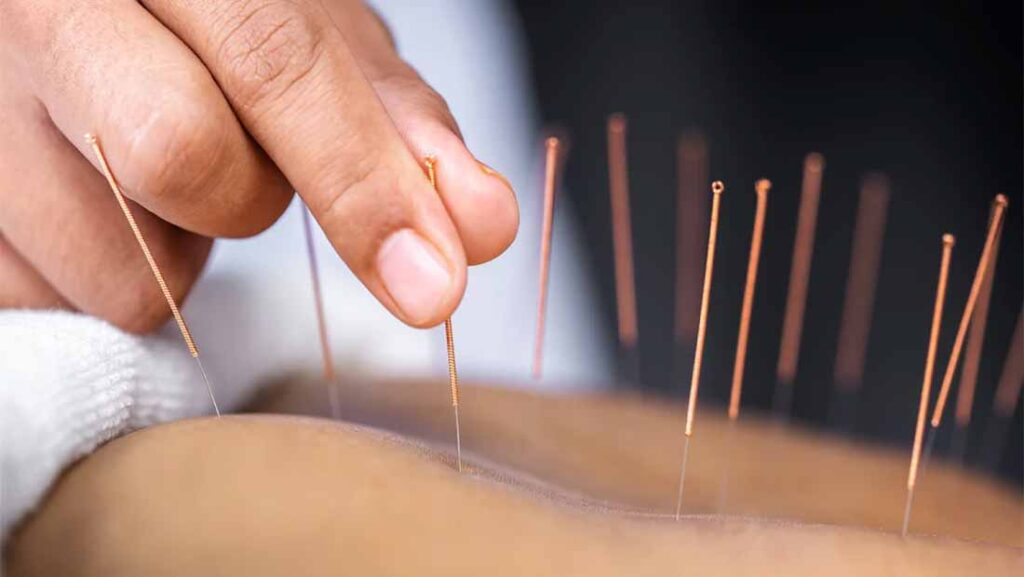Traditional medicine and its role in health promotion and disease prevention
Traditional medicine is a set of knowledge, skills and practices based on theories, beliefs and experiences of each culture. In many parts of the world, traditional medicine has been used for centuries for health promotion and disease prevention.
Traditional medicine is based on the idea that health is a balance between body, mind and spirit. Therefore, it focuses on treating the whole person and not just the disease itself. Traditional medicine uses a variety of techniques, including herbal medicines, acupuncture, massage, diets, and exercises, among others.
In many parts of the world, traditional medicine remains the primary form of medical care for millions of people. In these places, traditional medicine not only provides treatments for diseases, but also plays an important role in disease prevention. Traditional medicine focuses on disease prevention by helping to maintain a healthy balance in the body and mind, and by strengthening the immune system.
In addition, traditional medicine often promotes healthy lifestyles, including a balanced diet and regular physical activity. These practices can help prevent chronic diseases such as diabetes, obesity, cardiovascular diseases, among others.
Traditional medicine plays an important role in health promotion and disease prevention. Although it faces criticism and challenges, especially in regards to the lack of scientific evidence and lack of regulation in some cases, traditional medicine remains an important form of medical care in many parts of the world.
Health promotion
Health promotion is a comprehensive approach to improving the health and well-being of individuals and communities. It is a process that involves not only the treatment of diseases, but also the prevention of diseases and the promotion of healthy lifestyles.
Health promotion involves a wide variety of strategies and actions, from education and awareness raising to policy and regulation. Some of the most common strategies used to promote health include:
Education and awareness: Health education is essential to promote healthy lifestyles and prevent disease. Education and awareness may include distributing information on disease prevention and promoting healthy lifestyles.
Policies and regulations: Policies and regulations can have a major impact on the health of individuals and communities. For example, smoking policies in public places can help reduce exposure to secondhand smoke and decrease rates of tobacco-related diseases.
Healthy environments: Healthy environments, such as public spaces and workplaces, can be designed to promote healthy lifestyles. For example, the inclusion of walking or running trails in public parks may encourage physical activity.
Community Engagement: Community engagement is essential to promoting health and well-being. Communities can work together to identify health problems and develop solutions and programs that address those needs.
Health promotion is a comprehensive approach to improving the health and well-being of individuals and communities. It requires the implementation of a wide variety of strategies and actions to prevent disease and promote healthy lifestyles.
Disease prevention
Disease prevention is a key focus in promoting the health and improving well-being of individuals and communities. It is a set of strategies and actions that aim to prevent or reduce the occurrence of diseases.
There are three levels of disease prevention: primary prevention, secondary prevention and tertiary prevention.
Primary prevention: focuses on preventing people from developing a disease in the first place. Some of the strategies used for primary prevention include promoting healthy lifestyles, vaccination, health education, and eliminating risk factors for disease.
Secondary prevention: focuses on early detection of diseases to prevent them from worsening and causing serious complications. Some of the strategies used for secondary prevention include screening, regular medical exams, and follow-up of people with risk factors.
Tertiary prevention: focuses on preventing disease recurrence and disability associated with chronic diseases. Some of the strategies used for tertiary prevention include rehabilitation, chronic disease management, and ongoing medical care.
Some of the actions that can be taken to prevent disease include:
Maintain a healthy and balanced diet.
Get regular physical activity.
Do not smoke or consume alcohol in excess.
Get vaccinated against infectious diseases.
Wash your hands regularly and take hygiene measures to prevent the spread of infectious diseases.
Perform regular medical exams and screening tests based on age and risk factors.
Control risk factors for diseases, such as high blood pressure, diabetes, and high cholesterol.
Disease prevention is critical to improving the health and well-being of individuals and communities. It is a comprehensive approach that includes primary, secondary and tertiary prevention, and requires the implementation of a wide variety of strategies and actions to prevent or reduce the occurrence of diseases.
Balance between body, mind and spirit
The balance between body, mind and spirit is critical to a person’s overall health and well-being. It is a comprehensive approach to health that recognizes the interconnectedness between body, mind and spirit, and seeks to achieve a harmonious balance between them.
The body refers to the physical part of a person, including their physical health and well-being. The mind refers to a person’s mental and emotional processes, such as thought, perception, emotions, and memory. Spirit refers to a person’s deepest and most meaningful dimension, their sense of purpose and meaning in life.
Some of the actions that can help achieve a balance between body, mind, and spirit include:
Healthy and balanced eating
Diet can have a big impact on a person’s physical and mental health. Eating a diet rich in nutrients, fruits, vegetables, and healthy protein can help maintain a healthy body and a clear mind.
Regular physical activity
Regular exercise is not only good for physical health, but it can also reduce stress and improve mood.
Meditation and relaxation
Meditation and relaxation can help reduce stress, anxiety, and improve mental health.
Spiritual Development
Practicing activities that foster connection to something greater than oneself, such as meditation, prayer, or religious practice, can help you find a greater sense of purpose and meaning in life.
Social connection
Social connection and meaningful relationships can improve emotional well-being and reduce the risk of social isolation and depression.
The balance between body, mind and spirit is essential to a person’s overall health and well-being. Achieving this balance requires the implementation of a variety of actions that address both physical and mental health, and that foster a person’s spiritual and social connection.
Lack of scientific evidence in Traditional Medicine
Lack of scientific evidence refers to the absence of solid and reliable empirical data to support a certain claim or practice. In medicine and health, scientific evidence is considered the basis for science-based decision-making and health care.
It’s important to note that a lack of scientific evidence doesn’t necessarily mean something isn’t effective or safe. It simply indicates that not enough scientific studies have yet been done to support or refute a particular claim.
In the health arena, it is common for practices or products that claim to have health benefits to be promoted without solid scientific evidence to support them. For this reason, it is important to be critical and demanding of health-related claims and practices, and always seek information backed by reliable scientific evidence.
When it comes to making health decisions, it is important to seek information from reliable, evidence-based sources, such as peer-reviewed scientific journal articles or recommendations from respected and recognized health organizations.
Lack of scientific evidence does not necessarily mean that something is not effective or safe, but it does indicate that not enough scientific studies have yet been done to support a particular claim. In the field of health, it is important to be critical and demanding with health-related claims and practices and always seek information supported by reliable scientific evidence.
Lack of regulation in Traditional Medicine
Lack of regulation refers to the absence of laws, standards or guidelines that regulate and monitor the quality, safety and effectiveness of a given practice, product or service. In healthcare, regulation is critical to ensuring that practices and products are safe and effective for people.
Lack of regulation can be a significant problem in the health arena, as it can lead to unsafe practices, low-quality products and unproven treatments that can have negative effects on people’s health. In addition, a lack of regulation can also lead to the exploitation of vulnerable people, such as those seeking alternative treatments for serious illnesses.
Importantly, regulation in the field of health is not an easy task, as it is necessary to balance the need to protect people with access to effective treatment options. However, it is important that health-related practices, products and services are regulated to ensure they are safe, effective and ethical.
In many countries, government agencies are responsible for health regulation. These bodies set standards and requirements for the practice of medicine, medical research, and the marketing of health products. In addition, these organizations can also monitor the safety and effectiveness of health products and sanction those that do not meet the required standards.
In summary, the lack of regulation in the field of health can be a significant problem that can lead to unsafe practices, low-quality products and unproven treatments that can have negative effects on people’s health. It is important that health-related practices, products and services are regulated to ensure they are safe, effective and ethical.


